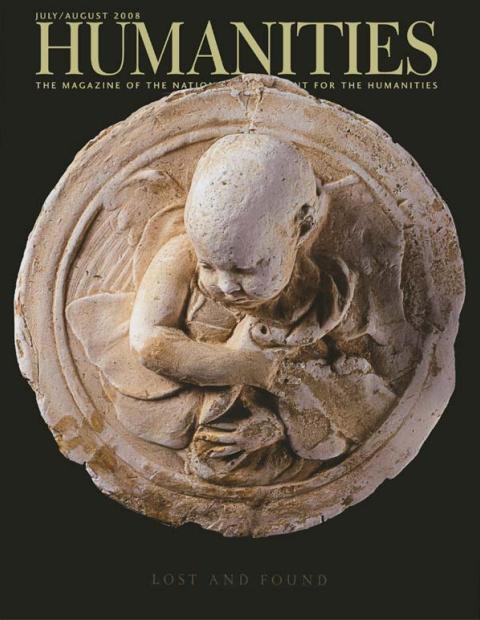Ted Lord can point to a map of Washington State and convey, with a sort of contagious enthusiasm, the wide-ranging impact of Humanities Washington.
There are the Story Exploring family reading programs in Seattle and other urban school districts, and a migrant-worker literacy drive that stretches across the state’s rural farms and orchards. His organization sponsors dozens of Inquiring Mind community conversation events, at which experts lead seminars with intriguing titles, such as “Tea, True Womanhood, and Uppity Women” and “Speeders, Galloping Geese and Doodlebugs: Little Trains that Served the Northwest.” Humanities Washington also has the ambitious goal of hosting at least one such event annually in each of Washington’s thirty-nine counties by 2011.As executive director, Lord is also enthused about the organization’s move later this year into the historic Stimson-Green mansion in Seattle’s First Hill neighborhood. The eclectic, almost whimsical, architecture of the many-gabled 107-year-old mansion—with English Tudor, Moorish, Gothic, Renaissance, and Neoclassical touches inside and out—makes the mansion a popular spot for wedding receptions and murder-mystery dinners. It will still offer those and, with Humanities Washington headquartered there, it will also provide a perfect spot for salon-style gatherings.
Still, as interesting as all these gatherings and events are, there seems to be even a bit more twinkle in Lord’s eyes as he discusses Humanities Washington’s goals for serving an online world. Befitting Seattle’s reputation as a high-tech hub, Lord envisions using the Web to stitch an entire new fabric of communication—and wisdom—into the state’s cultural tapestry.
“We are living in a golden age for pamphleteers,” says Lord, leaning in to emphasize the “golden” bit. “It has become possible to connect people in ways never available before. The Web brings together huge numbers of people, of course. But it also allows us to find narrower and narrower slices of affinity.”
And while the idea of “cloud computing” is often cited as a way to put many minds to work simultaneously on a scientific or engineering challenge, Lord envisions ways that an online community could come together and collaborate in other ways—to think, to philosophize, to write a poem, or a story.
In any event, Lord says, he loves the idea of people thinking of the Web more as a vehicle for culture than for commerce.
“I'm all for reflection, discernment, and giving voice,” he says, “as opposed to buying more things we don’t need.”
Lord came to his post at Humanities Washington in 2006 after a diverse career. For the five previous years, he was a partner at The Giving Practice, a Seattle-based affiliate of Philanthropy Northwest that provides guidance for individuals, families, and corporations on their charitable giving. He was also executive director of the Pride Foundation, serving the lesbian and gay community across five Northwestern states, and worked with the United Way of King County, Seattle, and the Seattle-based Community Services for the Blind.
A native of New York City and onetime Peace Corps volunteer in Mauritania, Lord came west to earn a master’s degree in English at the University of Washington. He and his partner, Chris, have two children—Henry, 10, and Rebecca, 7.
Lord is also a poet, and a driving force behind Washington State’s recent legislation to establish an official poet laureate program, the forty-first state to do so. Lord’s works have been published in forty literary journals—and even on the side of a Metro Transit public bus, part of the Seattle-based transit agency’s popular “Poetry on Buses” program, which received more than three thousand submissions last year alone. Lord’s poem, “Eavesdropping on the Metro 43,” greeted Seattle-area commuters in 1998, when the theme, “Telling Our Stories,” summoned poets to create verse they would like to share with someone—presumably a total stranger—sitting next to them on a bus:
Voice lowered, she confides
one seat up that she can just slide
a tall cheap vase a couple inches over—the amplified
stethoscope’s all set up, one quick connection
and she can hear every step of Irma and Bob:
how they fight, how they make it up. Flushing,
she bashfully pulls a curtain of hair back
behind burning ears.


